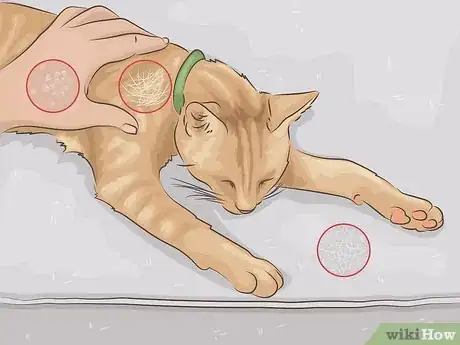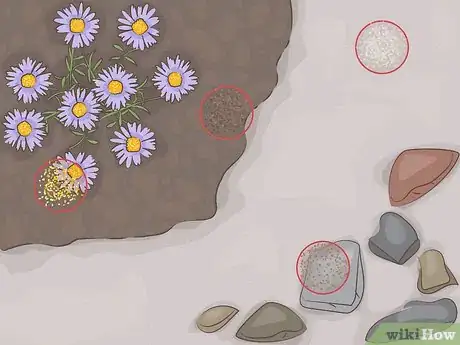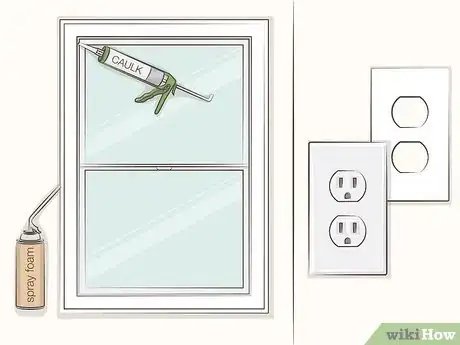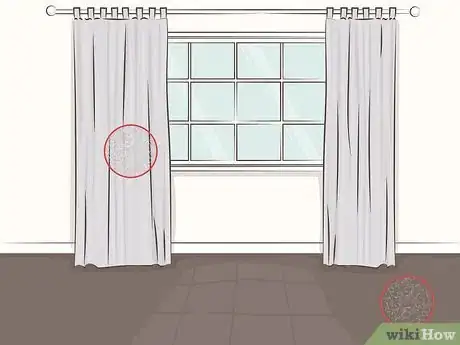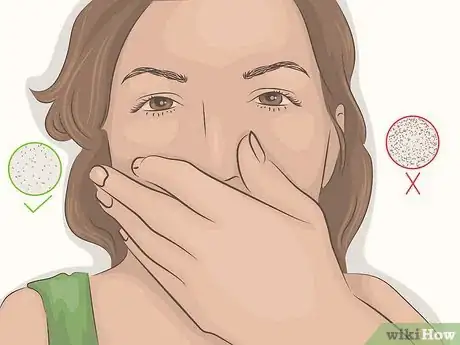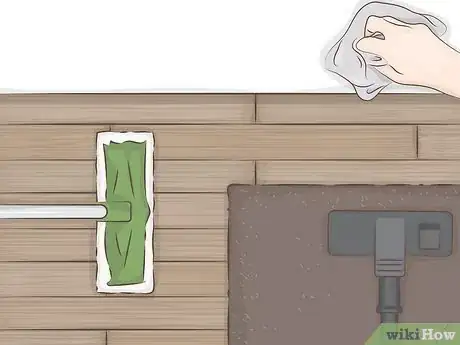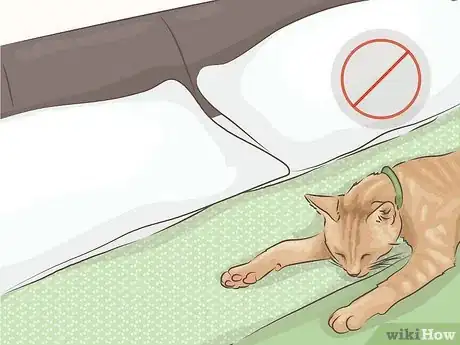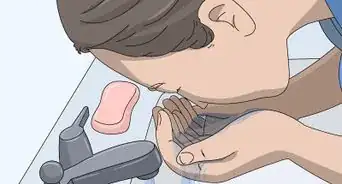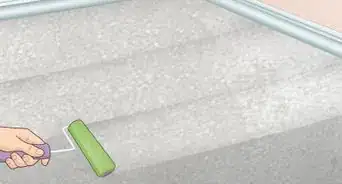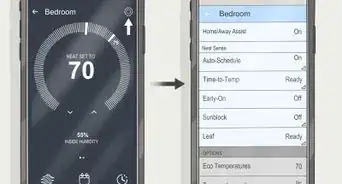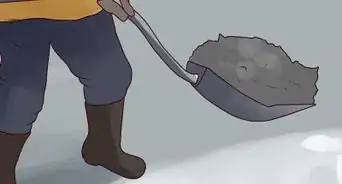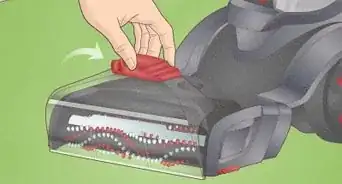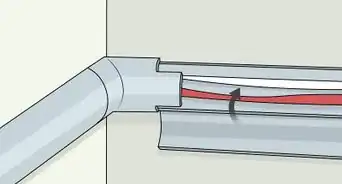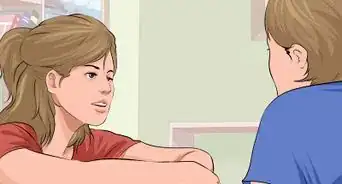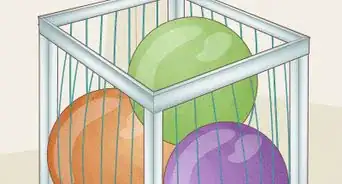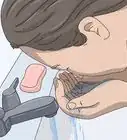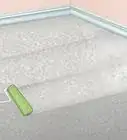This article was co-authored by Kadi Dulude and by wikiHow staff writer, Amber Crain. Kadi Dulude is a House Cleaning Professional and the Owner of Wizard of Homes, a New York City-based cleaning company. Kadi has over 10 years of experience and manages a team of over 90 registered cleaning professionals. Her cleaning advice has been featured in Architectural Digest and New York Magazine.
There are 11 references cited in this article, which can be found at the bottom of the page.
This article has been viewed 11,128 times.
Getting rid of dust keeps our living spaces clean and healthy, but have you ever wondered where all that dust comes from? Dust is made up of many different kinds of particles. Some of those sources probably won't surprise you, but others are pretty unexpected (and a little gross!) Below we'll answer your most common questions about household dust and give you some helpful tips on how to control it.
Steps
What is the main cause of dust?
-
1The main indoor culprits are fabric fibers, skin flakes, and pet dander. Anything organic and capable of decay creates dust. We don’t normally think of things like carpet, bedding, and upholstered furniture as actively decaying, but they are—very slowly. Humans shed dead skin cells constantly and those tiny particles accumulate to form dust. Indoor pets shed dead skin (dander) and their fur, so they tend to be big contributors, too.[1]
- Houseplants and dead/decaying insects also create dust.
-
2About 60% of indoor dust comes from outdoors, though. Eroding soil, sand, and rock are the most common sources of outdoor dust.[2] Pollen, microorganisms, and other air pollutants are also big factors.[3] Anytime we go outside, we track tiny amounts of that stuff back indoors with us.[4]
- Outdoor dust also gets in through open windows, loose door, and window fittings, and unsealed structural gaps.[5]
Why is there so much dust in my house?
-
1You might need to replace the air filter in your HVAC system. Dust naturally accumulates in vents and ducts; air filters help trap most of that dust so it doesn't get inside your home. To ensure your filter is working as efficiently as possible, replace it every 3 months. Go with a replacement filter that has a MERV rating between 5 and 8 for the best results.[6]
- MERV stands for Minimum Efficiency Reporting Values. The MERV rating refers to a filter's ability to capture particles. The higher the MERV rating, the more effective the filter is at trapping particles.[7]
- If you have pets or kids, check the filter once a month and replace it when it looks saturated with dust.
- If there’s a significant amount of dust buildup inside your HVAC system, or if someone in your family is experiencing sudden allergy symptoms, consider getting the system professionally cleaned. Always hire a certified HVAC professional for the job since improper cleaning can make things worse.[8]
-
2You may need to seal and weatherproof your home so dust can't get in. A significant amount of indoor dust comes in through loose windows, unsealed cracks, and air leaks around ducts and plumbing. You can seal up those leaky areas and reduce dust inside your home by doing the following:[9]
- Caulking and weatherstripping doors and windows
- Caulking around plumbing, ducting, and electrical wiring
- Installing foam gaskets behind outlet and switch plates
- Sealing gaps around baseboards/windows with spray foam[10]
-
3If you have carpet or fabric drapes, those tend to trap a lot of dust. If you have wall-to-wall carpeting and thick fabric drapes in every room, household dust is going to be an issue since those fabrics tend to collect and trap dust particles. You can reduce the dust by vacuuming carpets and drapes at least once a week.[11]
- Laundering drapes (or getting them dry cleaned) once a year also helps.
- Frequently washing other textiles like bedding, pillows, and throw blankets can prevent dust buildup.[12]
How do I keep my house from getting so dusty?
-
1Vacuum, mop, and wipe down surfaces more frequently. Use moist paper towels to wipe down tabletops, shelves, fixtures, and other hard surfaces once a week. Vacuum carpeting every other day with a good quality vacuum cleaner that has a HEPA filter.[14] If you have hard floors, mop or vacuum to clean them (sweeping just moves dust around).[15] You can also reduce dust on surfaces by:
- Keeping the doors and windows closed
- Placing dust mats at every entrance
- Leaving your shoes at the door before coming inside
- Replacing carpet with hard flooring
-
2Restrict your pet’s access to bedrooms. Chances are, you don’t want to get rid of your furry friend because of dust. The next best thing is restricting their access to bedrooms and sleeping areas. Fabrics, like blankets and mattresses, tend to collect a lot of dust and dander. It's easier to control dust when it's contained in other areas.[16]
- Keep in mind that you spend 7-9 hours a day sleeping in your bedroom. Even if you don't have allergies, breathing in all that extra dander isn't great for your lungs.
- If your pet is indoor/outdoor, let them enjoy the outdoors a little more often.
- If possible, keep pets away from upholstered furniture and carpeted areas.
- Wash your pet's bedding once a week to reduce dander.
References
- ↑ https://www.npr.org/templates/story/story.php?storyId=120252957
- ↑ https://www.healthywa.wa.gov.au/Articles/F_I/Health-effects-of-dust
- ↑ Kadi Dulude. House Cleaning Professional. Expert Interview. 22 September 2019.
- ↑ https://www.sciencedaily.com/releases/2009/10/091028114023.htm
- ↑ https://www.bobvila.com/articles/why-is-my-house-so-dusty/
- ↑ https://www.bobvila.com/articles/why-is-my-house-so-dusty/
- ↑ https://www.epa.gov/indoor-air-quality-iaq/what-merv-rating-1
- ↑ https://www.epa.gov/indoor-air-quality-iaq/should-you-have-air-ducts-your-home-cleaned#deciding
- ↑ Kadi Dulude. House Cleaning Professional. Expert Interview. 22 September 2019.
- ↑ https://www.energy.gov/energysaver/weatherize/air-sealing-your-home
- ↑ https://www.bobvila.com/articles/why-is-my-house-so-dusty/
- ↑ https://wtamu.edu/~cbaird/sq/2013/04/29/how-does-dust-get-in-a-house-when-the-doors-and-windows-are-always-closed/
- ↑ https://www.healthywa.wa.gov.au/Articles/F_I/Health-effects-of-dust
- ↑ https://www.bobvila.com/articles/why-is-my-house-so-dusty/
- ↑ https://wtamu.edu/~cbaird/sq/2013/04/29/how-does-dust-get-in-a-house-when-the-doors-and-windows-are-always-closed/
- ↑ https://www.cdc.gov/nceh/publications/books/housing/cha05.htm
- ↑ Kadi Dulude. House Cleaning Professional. Expert Interview. 22 September 2019.
- ↑ https://www.epa.gov/sites/production/files/2018-07/documents/guide_to_air_cleaners_in_the_home_2nd_edition.pdf
